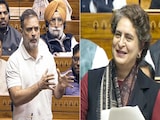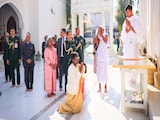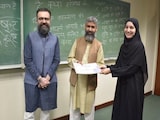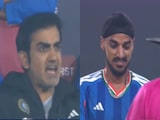I am a doctor, and every day of my life for the past 30 years or so, I have woken up, got ready and gone to hospital. The hospital, to me, often seems to be a prism that converges life outside its walls into a pinpoint, with happiness and grief magnified, fear and relief heightened. There is love and gratitude, as well as hate and anger in equal measure, and human relationships forming and breaking at so many levels in every single 'routine' day at the hospital. What transpires in the hospital embodies life in all its fullness. However, while reams of clinical history and medical notes are written arduously every day in every hospital by its diligent doctors and nurses, there is no one to document any of the human stories that unfold continuously in the long corridors and the lonely wards of the hospitals. Perhaps no one wants to know.
As a doctor, I am privileged to be a witness to the human lives and stories around me, and I find myself observing and assimilating these all the time. Whenever something strikes me, as out of the ordinary or sometimes even very run of the mill, I have tried to grasp the thought and jot it down before I forget, with no particular or immediate purpose. But these jottings helped me crystalise my initial and raw impressions and eventually found their way into this book.
The story I tell is a chronicle about doctors from two decades ago. While autobiographical in events and chronology, it represents the generation of doctors from India at that time; the stories are drawn from hospitals and from the lives of doctors, seen from the immigrants' perspective. Perhaps the story is medicine marries immigrant angst. But within the angst, I hope the story conveys the seamlessness of medicine, of doctors in white coats and nurses in uniforms who speak the universal language of medicine, encompassing not only scientific skill but also human kindness, be it in India or in England.
I wrote the first draft after I returned from England ten years ago, which is when I got a chance to sift the images and stories that I carried with me and that finally sedimented into what I felt merited telling. I filled it in from time to time, patchily, uncertainly, whenever time permitted from a busy medical practice - sometimes it seemed like a story that needed telling and sometimes not.
When I think back, the original narrative was cold, clinical, and possibly comprehensible to only a medical eye. Predictably, the first draft was trashed by the reviewer. The work I subsequently did on it made it more human, I hope, and entwined life, hospital, and doctors into a format easier to read and understand for anyone at all.
I wrote 'In A Better Place' because I wanted to write about the lives of doctors, a story that is hardly ever told. I wanted to describe the emotions of belonging and not belonging, about allegiances, ambitions, economics of life, what drives us to different places and how we make our peace with the circumstances that we find ourselves in. The characters - Sudha, Jai, Sanjay and Girish are derived from and are amalgamations of myself, colleagues, friends, and doctors that I met on the way, right from medical school to post graduate training to the UK sojourn. Each character is developed in a certain way - one is an idealist, one a pacifist, another a pragmatist, and one an angry young man with a good heart.
The story begins in Delhi at the turn of the millennium, as the doctors plan their future. The four doctors travel a path familiar to all doctors - a tough path that takes them through training and academics till they emerge as qualified doctors, but also find themselves at crossroads about their future. The west, blue-eyed and unsullied, beckons and they take flight into these lands of order and untold wealth, leaving behind the chaos of their homeland. They get absorbed into the health system of the country, fulfilled by the work and the money earned, but always conscious of wanting to go home. A glimpse of the life of doctors, the humans of that society, the flawed science of medicine and the even more flawed healthcare systems, are provided through events that thread through the lives of the doctors over a decade. Circumstances force them to follow unexpected, unplanned courses - older and wiser, they make their peace with the situations they find themselves in.
This is a brutally honest yet refreshingly innocent and a very real account of a time gone by, before globalisation and digitisation, in two disparate societies, seen through the eyes of doctors and through the medium of Medicine.
(As a pulmonologist and public health advocate, Dr. Bornali Datta has worked in some of the busiest hospitals in the UK and Delhi, India. The social and human nuances of Medicine are her inspiration for writing and she movingly captures the experience of doctors and patients.)
Disclaimer: These are the personal opinions of the author.















